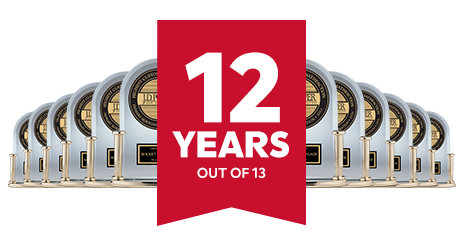What is a co-op? How does co-op housing differ from living in a condominium or garden-variety single-family apartment? And what does it mean to be part of a housing cooperative? These are good questions – and ones you’re probably wondering about if you’ve never lived in a big city like Washington, DC, or New York.
In some ways, co-op housing operates similarly to condo living. But at the same time, it’s worth noting they are not the same. Let’s take a closer look at what exactly a co-op is.
Co-Op Definition
Cooperative housing (commonly described by referring to an individual co-op) is a type of homeownership common to apartment buildings in big cities such as New York. For practical intents and purposes, a co-op can be defined as a building that is jointly owned by a corporation made up of all its inhabitants. When you buy into a co-op, you’re not purchasing a piece of property – rather, you’re personally buying shares in a nonprofit corporation that allows you to live in the residence.
What Do Co-Op Homes Look Like?
In general, co-op housing is an apartment that’s part of a large building in a big city. However, several other co-op models exist. Also worth noting: A co-op can also take the form of a townhouse, duplex, or any other type of available housing – including single-family homes, mobile homes and groups of tiny houses situated on co-op land.
Buying A Co-Op Vs. Buying A Condo
Although it’s common to think of condos and co-ops as being similar, it’s important to remember that they don’t operate in an identical fashion. Let’s take a look at the major differences you may encounter when buying a condo versus buying a co-op.
Buying A Condo
For sake of clarity, when you buy an apartment or condo, you’re typically buying the interior contents that lie behind a numbered door – one of many individual units. You’re effectively buying ownership of an individual unit in the building in which you’ll reside. As you hold the deed to the property, you also get to benefit from any equity or additional value that accrues in the property as well. As an added bonus, you may also enjoy a relative measure of flexibility when it comes to renovating, upgrading or performing DIY updates to your condo unit. Purchasing and acquiring financing for a condo is also generally easier than for co-ops as well.
Buying A Co-Op
On the flip side, if you elect to buy into a co-op, you’re effectively buying shares in the corporation that owns the overall property. Under the terms of a co-op, everyone who lives in the co-op is considered a shareholder, and the size of the apartment you inhabit determines your stake in the building. Everyone who resides on-premises enjoys access to certain common areas of the building (which, like the interior and exterior of the property, are owned by the corporation). Likewise, they all share in the expenses and responsibility for maintaining the upkeep of the property.
In other words: While you’re paying for the right to live in a specific unit of a building, you don’t actually own this unit outright – and may have fewer options when it comes to making changes, additions or renovations to the residence. Buying a co-op also tends to involve a more demanding application process and may involve being interviewed by the co-op board and financially vetted before you’re approved to purchase shares.
It should also be noted that you can’t usually finance a co-op with a mortgage. Co-ops require special financing because as a buyer, you’re purchasing a share in the company that owns the building, rather than the unit itself. Rocket Mortgage® only offers co-op financing in certain areas of New York. Purchasing a condo with traditional financing can provide you with a lot of the same benefits as co-op living, and you’ll enjoy a simpler financial process, including the ability to make your offer more compelling with a Verified Approval Letter.
Buying a home? We'll cover 1% of your rate for the first year.1
There are still good reasons to refinance. See what goals we can help you meet.
How Does Co-Op Housing Work?
As briefly touched on prior, a co-op is a nonprofit organization. This means it comes with a board of directors and shareholders, as well as several other entities that keep the co-op running smoothly. These entities are:
- The board of directors: The co-op board is responsible for setting policies and making decisions that are in the co-op’s best interest. Policies handed down by the board, which govern life within the co-op, are generally referred to as by-laws – and these by-laws commonly come in the form of rules and restrictions.
- The co-op association: This entity is responsible for managing and collecting membership fees, which are used to cover property taxes, building maintenance, amenities and any mortgages attached to the property.
- Shareholders: Shareholders are those who buy into the co-op. They own a portion of the company that owns the building in which they reside. All co-op owners are responsible for the co-op’s mutual financial obligations. Payments often cover common expenses such as building maintenance and upkeep, renovations or improvements to common areas, underlying mortgages attached to the property and its units, etc.
- A management company: The cop-op board may hire a management company to deal with day-to-day issues such as building maintenance.
Advantages And Disadvantages Of Co-Op Living
As with any form of housing, co-op living comes with upsides and downsides attached – including pros and cons you’ll want to be aware of before buying into a co-op.
Pros Of Co-Ops
- Lower purchase price: If you live in a large city such as Washington, DC, or New York, you’ll generally find that co-ops tend to be slightly cheaper and require less closing costs than if you purchased a condo.
- Less responsibility: If you’ve ever owned a piece of property, then you know you’re responsible for any maintenance needs that come up. Owning a co-op apartment may feel similar to renting in that you’ll find that you aren’t responsible for major items of upkeep that take place beyond the boundaries of your own unit.
- Better insight into your neighbors: Because co-op boards require detailed and extensive financial records and character references from applicants, you’ll at least have some idea of who they are and some sense of any interests or values that they may share.
- Tax benefits: Properties in select areas of the country may allow you to deduct interest on your loan for your share of the property, and your share of the interest on the blanket mortgage the co-op holds for the building. Likewise, certain maintenance fees may be tax deductible. If you have questions, contact a qualified tax professional.
Cons Of Co-Ops
- Higher monthly fees: Although the purchase price of a co-op often comes in lower than buying a condo, minimum down payments are typically higher. Monthly expenses and charges tend to be higher, based on what expenses these fees cover (such as utilities, parking, etc.).
- Greater restrictions: Don’t forget to read the by-laws in-depth before buying into a co-op. These rules will sketch out what is and isn’t permissible for building residents (like if you can have pets or if you can sublease your apartment). A careful reading can also help you get a better sense of what renovations, upgrades, or changes to your apartment unit can be made as well.
- Limited buying pool: By-laws incorporated into co-op housing residences can place significant restrictions on shareholders’ ability to resell their shares and divest themselves of real estate holdings. Then again, keep in mind that during COVID, co-ops held value better than condos in NYC because co-op boards weed out financially risky prospects.
Cooperative Housing FAQs
As you might imagine, prospective co-op applicants may have many frequently asked questions when it comes to cooperative housing. Below, you’ll find answers to several common queries.
What’s the difference between a condo and a co-op?
Differences between a condo versus a co-op largely come down to whether you own the individual property unit, or hold shares in a building, respectively. Condos typically offer owners more options when it comes to renovating or rehabbing their units and are easier to finance. Co-ops (in which you buy shares of a property) are generally more stringent when it comes to modifying the residence and who’s allowed to live in the building.
Should I buy a co-op?
That depends on your individual situation. Do you want less responsibility? To live in a property that’s harder to divest yourself of, but has a more stringent qualification process on who’s approved to live in the building? Are you comfortable with owning shares in a non-profit housing corporation vs. an actual piece of property in the form of a unit (and purchasing them using a share loan instead of a mortgage)? You’ll need to consider a variety of these factors – including how hard it might be to resell your shares on the back end – especially if you’re considering purchasing a co-op as a means of investing in real estate.
Can I finance a co-op purchase with a mortgage?
Technically, no: Because co-op owners do not own real estate, the financing process is slightly different from a standard mortgage application. Rather than apply for a home mortgage loan, you’ll need to take out something called a share loan instead. During the application process, you’ll provide information to your lender about how the co-op operates. The lender will also look into the board of directors and take a look at the underlying mortgage. Some co-ops already have existing relationships with certain lenders, which can make the financing process much easier. This all said, because the share loan provides you with a place to live, financing a co-op has the same end result as financing a condominium – you acquire a home that you own.
The Bottom Line: Could A Co-Op Home Be Right For You?
At the time that you buy into a co-op, you’re not purchasing a specific piece of property but rather investing in shares of stock in a housing cooperative. Commonly confused with condos, co-ops can often take the form of apartments, duplexes, townhomes and other traditional forms of residential structures, but operate according to a different set of rules entirely.
Co-ops generally offer a more affordable way to buy into housing in big cities. But at the same time, governed by boards and by-laws and equipped with more stringent application processes, they often come with more rules and restrictions attached. Be sure to take ample time to do your research and homework when deciding if you’re going to be a tenant or if you’re going to buy a co-op.
Rocket Mortgage offers co-op loans only in specific areas of New York state. If you’re looking to buy a co-op in this area and are ready to get started, start the approval process with our Home Loan Experts today.
Save money with a lower interest rate.
Lock in your rate today before they rise.
1If client locks their initial rate on a purchase loan between 9/15/22 and 12/31/22 client's
loan is eligible for the promotional Inflation Buster offer. The promotional offer will effectively reduce
the rate by 1% for the first year of the mortgage; a custodial escrow account will be funded by the lender-paid
credit, up to a maximum amount of $9,708, and funds will be dispersed from the escrow account to the investor
to account for the difference in interest during buydown period. Offer valid on primary residences, and on
second homes through Fannie Mae and Freddie Mac. Offer not valid on Refinance loans, third-party mortgage
broker, the Partnerships channel (Schwab, Santander, Morgan Stanley, HLBP, RPO, etc.), Franchise Bankers,
Schwab C- products, Rocket 360, Team Member Loans and TM Referrals, non-agency Jumbo Loans, Interest Only,
2nd lien products, ARM products, investment properties, VA 2nd homes, Prospect credit triggers.
Additionally, cannot be combined with PowerPack or ANY other promotion. Offer valid on fixed-rate conventional
conforming and government loans in retail channels. Offer may not be redeemed for cash or credit and is
nontransferable. Offer cannot be retroactively applied to any loans and may not be used with any other
discounts or promotions. This offer is subject to changes or cancellation at any time at the sole discretion
of Rocket Mortgage. Additional restrictions/conditions may apply. This is not a commitment to lend and is
contingent on qualification per full underwriting guidelines.
Refinancing may cause finance charges to be higher over the life of the loan.
†RateShield Approval is a Verified Approval with an interest rate lock for up to 90 days.
If rates increase, your rate will stay the same for 90 days. If rates decrease, you will be able to
lower your rate one time within 90 days. Please contact your Home Loan Expert for additional information.
This offer is only valid on 30-year FHA, VA, and Conventional purchase loan products. Additional conditions
and exclusions may apply. Participation in the Verified Approval program is based on an underwriter's comprehensive
analysis of your credit, income, employment status, assets and debt. If new information materially changes the
underwriting decision resulting in a denial of your credit request, if the loan fails to close for a reason
outside of Rocket Mortgage's control, including, but not limited to satisfactory insurance, appraisal and
title report/search, or if you no longer want to proceed with the loan, your participation in the program
will be discontinued. If your eligibility in the program does not change and your mortgage loan does not
close due to a Rocket Mortgage error, you will receive the $1,000. This offer does not apply to new purchase
loans submitted to Rocket Mortgage through a mortgage broker. This offer is not valid for self-employed
clients. Rocket Mortgage reserves the right to cancel this offer at any time. Acceptance of this offer
constitutes the acceptance of these terms and conditions, which are subject to change at the sole discretion
of Rocket Mortgage. Additional conditions or exclusions may apply.
Lock Your Rate Today

Victoria Araj
Victoria Araj is a Section Editor for Rocket Mortgage and held roles in mortgage banking, public relations and more in her 15+ years with the company. She holds a bachelor’s degree in journalism with an emphasis in political science from Michigan State University, and a master’s degree in public administration from the University of Michigan.
Related Resources
Viewing 1 - 3 of 3
Rocket Sister Companies
Rocket Mortgage
About Us


1Based on Rocket Mortgage data in comparison to public data records.
Rocket Mortgage, 1050 Woodward Ave., Detroit, MI 48226-1906
NMLS #3030. Go here for the Rocket Mortgage NMLS consumer access page.
©2000-2022 Rocket Mortgage, LLC. All rights reserved. Lending services provided by Rocket Mortgage, LLC, a subsidiary of Rocket Companies, Inc. (NYSE: RKT).
Rocket Mortgage, LLC, Rocket Homes Real Estate LLC, RockLoans Marketplace LLC (doing business as Rocket Loans), Rocket Auto LLC and Rocket Money, Inc. are separate operating subsidiaries of Rocket Companies, Inc. (NYSE: RKT). Each company is a separate legal entity operated and managed through its own management and governance structure as required by its state of incorporation and applicable legal and regulatory requirements.
Apple and the Apple logo are trademarks of Apple Inc. registered in the U.S. and other countries. App Store is a service mark of Apple Inc.
Wear OS by Google and Google Play are trademarks of Google LLC.












